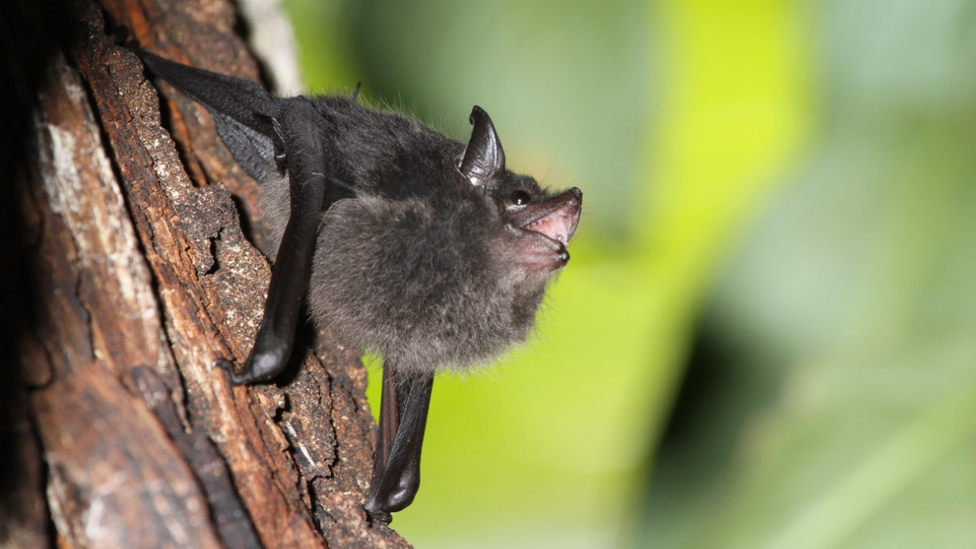Greater Horseshoe bats breed in Sussex after 100-year absence
- Published
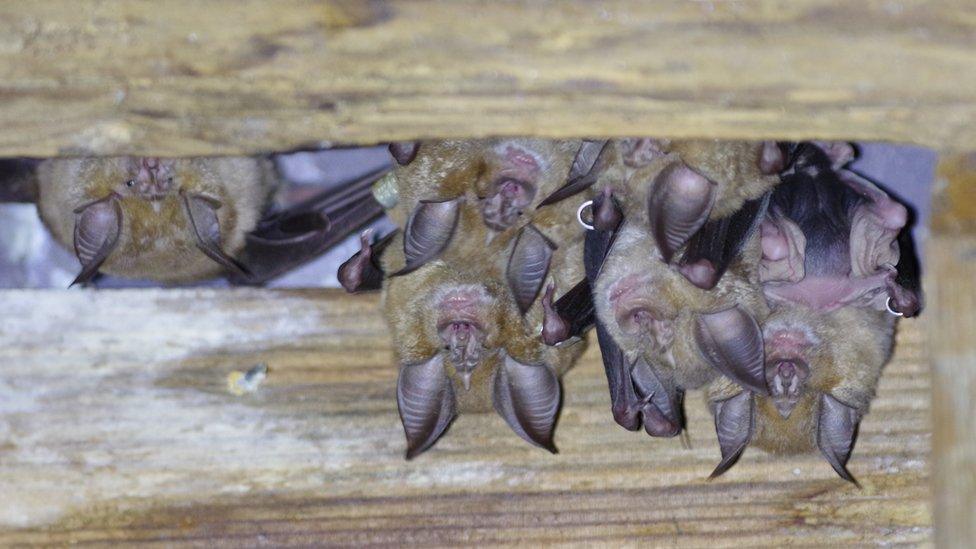
The family of Greater Horseshoe bats, called a founder colony, free-hang from the rafters of a derelict stables
A breeding colony of the Greater Horseshoe bat has been found almost 100 miles from the species' known area, a charity says.
The family of eight bats was discovered during an ecological survey at a derelict stables in West Sussex.
Wildlife charities the Sussex Bat Group and the Vincent Wildlife Trust are now fundraising to restore the site to protect and increase future breeding.
The exact location of the founder colony is being kept secret.
Tom Kitching, bat conservation officer for the Vincent Wildlife Trust (VWT), said: "The reason this is such an important site is we're about 100 miles from the core range of these bats.
"The VWT manages sites like this across the country and we have thousands of bats of this species breeding there, and that's what we're hoping to achieve here over time", Mr Kitching added.
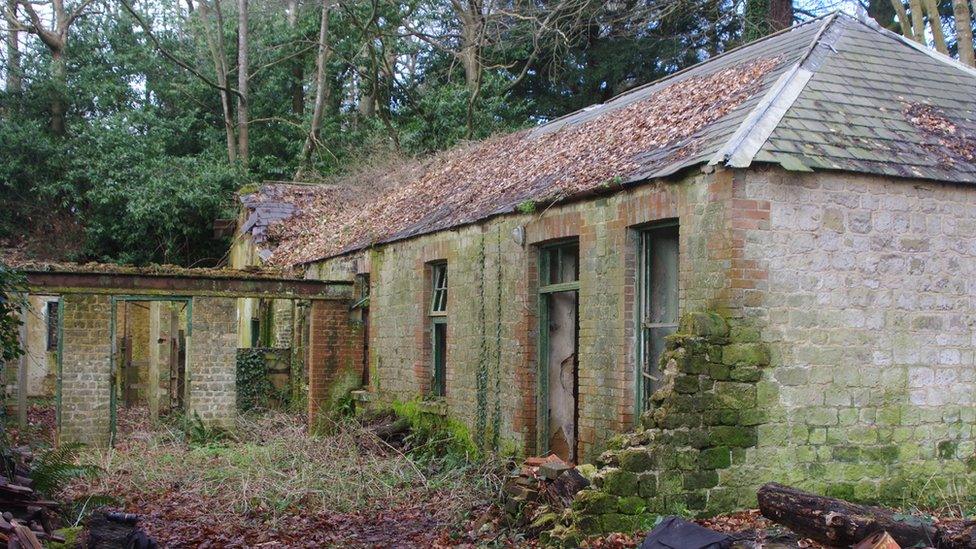
The charities are fundraising to restore the stables in West Sussex where the bats are breeding
Dr Stephanie Murphy from the Sussex Bat Group said: "We've had confirmed bats from the Dorset colony come to West Sussex to hibernate.
"So we always thought that the bats we found were from the South West hibernating here, but we found it was a founder colony at this site. Five adults and three babies."

Facts about Greater Horseshoe Bats:
There are about 13,000 Greater Horseshoe bats living in the UK compared to about 3 million Common Pipistrelle bat.
They are a larger 'free-hanging' species which roost by hanging by their legs from rafters.
They eat a diet of large insects, moths and beetles.
Females give birth to one baby at a time, usually born in late June to early July.
In summer they roost in stone-walled buildings with slate rooves and in winter choose to roost in caves, disused mines and cool cellars.
Source: Vincent Wildlife Trust

The Sussex Bat Group say the species' range was limited to the South West by the loss and redevelopment of Victorian aged buildings.
So far the charities have raised around £120,000 towards the purchase of the site. They say once it has been secured a further £150,000 will need to be raised to refurbish the stables and to turn it into a maternity unit for the species in Sussex in future years.

Follow BBC South East on Facebook, external, on Twitter, external, and on Instagram, external. Send your story ideas to southeasttoday@bbc.co.uk.
- Published7 October 2015
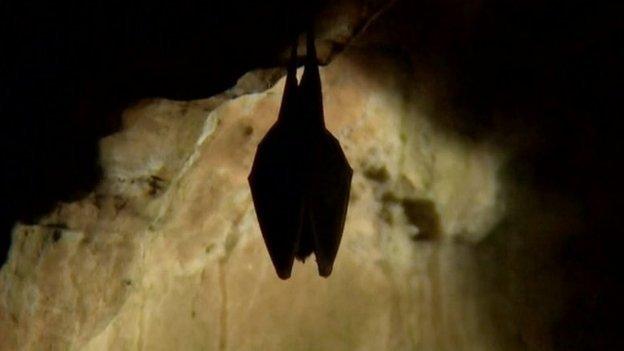
- Published25 January 2018
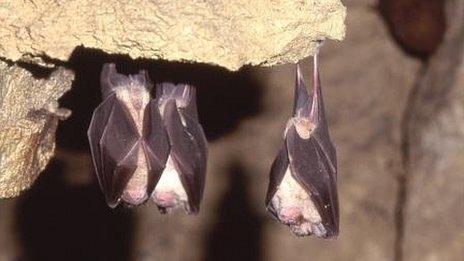
- Published19 August 2021
